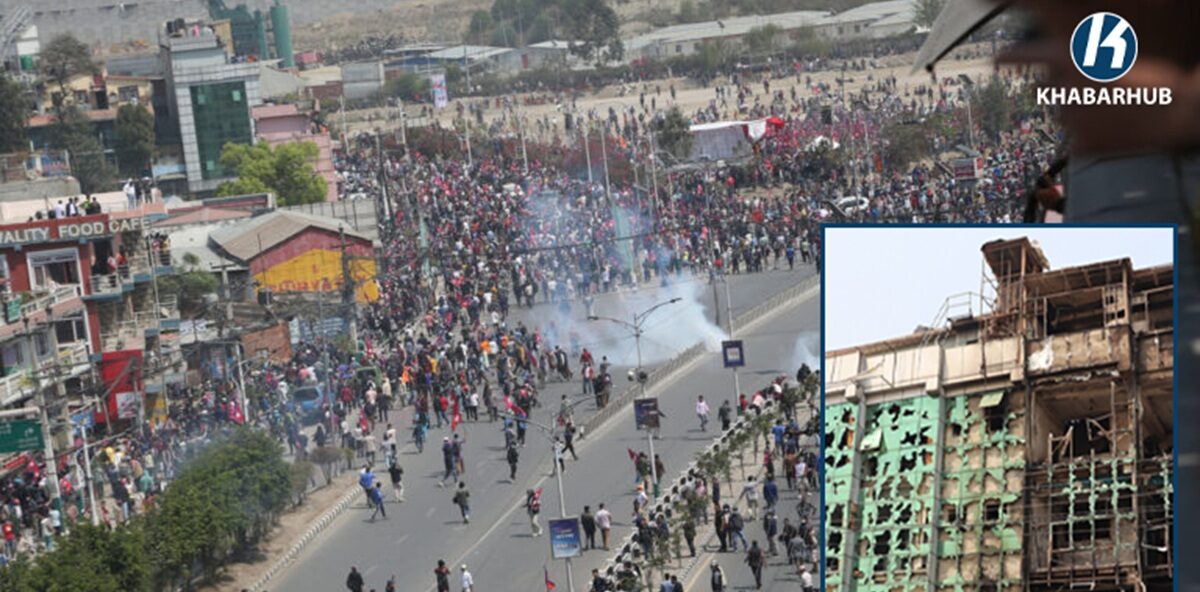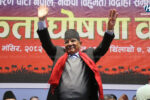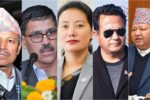KATHMANDU: The idea of a republic emerged when it became clear that the monarchy and democracy could not coexist.
From 2007 BS to 2063 BS, political parties, in particular, recognized this incompatibility. As a result, the people took to the streets against the king’s direct rule through the Jana Andolan of 2062-63 BS.
If we recall the movement on 2063 BS, more than one million people took to the streets, declaring that the monarchy was a dead end.
The 26-kilometer ring road around the Kathmandu Valley was completely filled with people.
Marches in favor of the republic took place in Kathmandu, Pokhara, Birgunj, Sarlahi, Biratnagar, Palpa, Nepalgunj, Bhairahawa, and every district headquarters.
In all these locations, the people demanded the abolition of the monarchy.
Dozens of citizens were martyred in the movement. But why has the slogan ‘Come, King, Save the Country’ resurfaced 17 years after the slogan ‘Gyane Chor Desh Chhod’ was first raised?
He explained, “What this shows is that some people are frustrated with them. They are not frustrated with the system. Those running the government, especially those who are not afraid of the people, cannot tolerate the style of government that is too rigid and disconnected from the people.”
At one time, citizens in India voiced that ‘British rule was better.’ Similarly, today’s protesters argue that one king is better than many.
Corruption was rampant during the 240 years of monarchical rule. In the republic established after so much struggle against that autocracy, leaders have now learned the same lessons as the Ranas and kings.
Out of frustration, street protests are once again calling for the rule they had once overthrown.
How did the situation emerge that leaders are now called ‘thieves’?
Four years ago, Rastriya Prajatantra Party (RPP) Chairman Rajendra Lingden stated that when leaders visit villages, they are often labeled as ‘thieves.’
While wishing the Nepali Congress’s 14th General Convention, he remarked that all political parties had lost the public’s trust. He said that from the perspective of the common people, politics was out of control.
“The government is not like the government, the parliament is not like the parliament, the court is not like the court. Who will fix all this?” he had asked.
He also pointed out that no government formed after 2046 BS had managed to complete its full term. Every party had split at some point. ‘Where did we go wrong?’ he asked.
Historically, people also referred to Girija Prasad Koirala as a ‘thief’ because he failed despite serving as Prime Minister five times.
The current Prime Minister is now being called ‘KP thief, leave the country.’
Protests both inside and outside the country have chanted against the Prime Minister, calling him a thief.
Just recently, a foreigner raised slogans against the Prime Minister, claiming that Kulman Ghising was dismissed due to manipulation at the Nepal Electricity Authority. Not only top leaders and the Prime Minister, but many others are being labeled as thieves.
Leaders acted against the system when they captured the party: Political analyst
Political analyst Shankar Tiwari has accused leaders of acting against the system after capturing their parties through democratic means.
Speaking to Khabarhub, he said, “Prachanda, Oli, and Deuba captured their parties through democratic means. Since 2072 BS, this trio has continuously held the position of Prime Minister. They are united, while everyone else is left outside. They repeatedly failed their parties by not allowing the constitution to function properly.”
“The leadership that has failed once has repeatedly run the party system through party capture. They do not prioritize the cadres and people of their parties more than the system among the common people,” Tiwari added.
“They have no basis to do anything new, nor do they want to make way for new leadership. How many laws have been passed, and how much development has occurred in the past 17 years?”
Tiwari emphasized the need to consider how much development has impacted political matters.
“Poverty and unemployment are rampant. The youth have no option but foreign employment. If democracy fails to deliver and the people’s dissatisfaction is not addressed creatively, a serious accident could occur.”
“Has the governing system in any country managed to support its economic structure? Has it been able to provide prosperity and progress to the common people? That is the question,” he said.
“They do not know what the royalists will do when they come to the streets today. They have expressed a desire to return to the 2047 BS system. King Gyanendra did not accept the 2047 Constitution when he took power in 2058 BS. Did Gyanendra claim he would follow the 2047 Constitution to the letter? No. This is just an attempt to destabilize the system and create confusion,” he said.
Tiwari claimed that there are more Prachanda loyalists than royalists. He explained, “What this shows is that some people are frustrated with them. They are not frustrated with the system. Those running the government, especially those who are not afraid of the people, cannot tolerate the style of government that is too rigid and disconnected from the people. The royalists have tried to benefit from this delicate situation.”
Tiwari acknowledged that calling leaders thieves is a natural consequence of public frustration.
“Yesterday, the king was also called a thief. In moments of agitation, rebellion, and passion, leadership is automatically criticized. It may not always be said directly, but it should be understood as the language of protest,” Tiwari said.
Meanwhile, senior advocate Dinesh Tripathi questioned the process through which a king could return to power.
“Under which constitution does a king come? This is a constitution written by the Constituent Assembly, issued through two Constituent Assembly elections. Now, what process can discard this constitution?” he asked.
Speaking to Khabarhub, Tripathi stated that the monarchy cannot return under any circumstances.
He remarked, “The cure for the disease should not be more dangerous than the disease. The constitution of Nepal has made the king completely irrelevant. There is a problem of misrule and corruption in the country, but the king will not solve it. We are searching for a solution in one direction, while looking in another, and that is wrong. Gyanendra is a tested figure.”
He questioned how the people had forgotten the corruption and misrule that occurred under the king’s rule.
“Human nature is changeable,” Prasai continued. “People’s interests evolve according to their needs. It is natural for people to call for a change in the system when it no longer suits them.”
“He hijacked democracy, took away civil rights, and deployed the military to control the media. He ascended to the throne in a mysterious manner, which was illegal in itself. Yet, he is bringing instability and chaos to the country again. To resolve this, the old leaders of the party must take a leave of absence from politics. There can be no solution from these leaders. Let’s change the leaders, not the system. The system is fine.”
Tripathi further alleged that the current instability arose after the republic turned into a complete looting regime.
“Why is there extreme disappointment among the people?” he asked. “The government formed under the constitution should have been able to provide good governance and eliminate unemployment. But only a limited number of people have benefitted from the republic,” he added.
“Poverty and unemployment are rampant. The youth have no option but foreign employment. If democracy fails to deliver and the people’s dissatisfaction is not addressed creatively, a serious accident could occur.”
Additionally, sociologist Sabita Prasai remarked that people have come to realize there are now many “kings without a crown.”
She said, “Yesterday, there was only one king in the country, but now thousands of petty kings have emerged in the republic. Even with an advanced system in place, the people have remained mere subjects. Their disappointment is now visible on the streets. Similarly, the leaders have done things that have stirred discontent toward political parties.”
“Human nature is changeable,” Prasai continued. “People’s interests evolve according to their needs. It is natural for people to call for a change in the system when it no longer suits them.”
She added, “It was promised that the republic would yield results. There was hope, but it has turned into disappointment. Speeches alone do not deliver results. The era of becoming a leader through speeches is over. People are now looking for tangible results.”









Comment